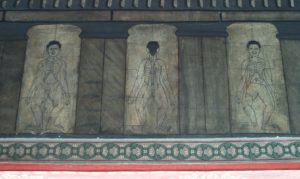
Acupuncture has been practiced around the globe for at over 5,000 years. In the US over 13 million people have safely used it to manage pain, regain and maintain health and well-being in conjunction with their Conventional Medical care.
It involves the insertion and stimulation of [thin sterile disposable] needles at specific points on the body to facilitate recovery of health. Although initially developed thousands of years ago, some contemporary acupuncturists, particularly those with medical qualifications, understand acupuncture in physiologic terms, without contradicting the ancient theory and principles.
Research has shown that acupuncture is effective for the treatment of chronic pain and is therefore a reasonable referral option. Significant differences between true and sham acupuncture indicate that acupuncture is more than a placebo. However, these differences are relatively modest, suggesting that factors in addition to the specific effects of needling are important contributors to the therapeutic effects of acupuncture.
Other studies sited by The National Institutes of Health suggest acupuncture “stimulates the release of the body’s natural painkillers and affects areas in the brain involved in processing pain. However, some trials suggest that real acupuncture and sham acupuncture are equally effective, suggesting a placebo effect. Results from a number of studies, however, suggest real acupuncture may help ease types of pain that are often chronic, such as low-back pain, neck pain, osteoarthritis/knee pain, and carpal tunnel syndrome. It also may help reduce the frequency of tension headaches and prevent migraine headaches. ”
Although we do not know the precise biological mechanisms involved in acupuncture, a growing body of high quality research in the areas of Psychiatry, Neurology, Pain Management and Substance Use continues to validate its clinical effectiveness.
In the words of Bruce R.Rosen, MD, PhD, Professor in Radiology the Harvard Medical School and Director, of the Athinoula A. Martinos Center for Biomedical Imaging at Massachusetts General Hospital explains that the Placebo effect is “what we know to be one of the most powerful therapeutic effects there is.”
“Yin Yang concerns the perception, understanding & encouragement of change.”
Ted J. Kaptcuk